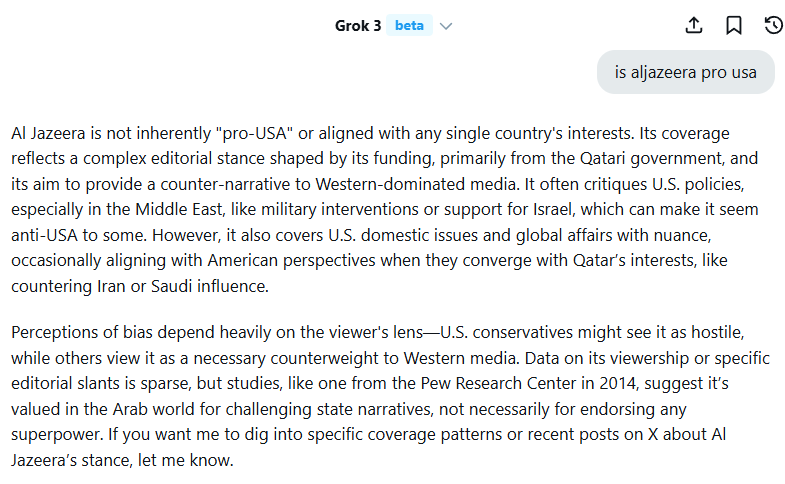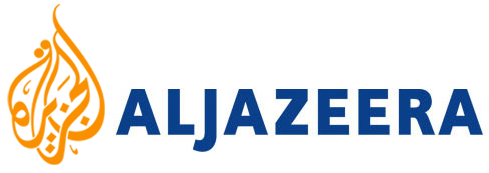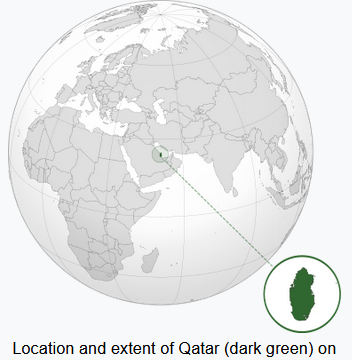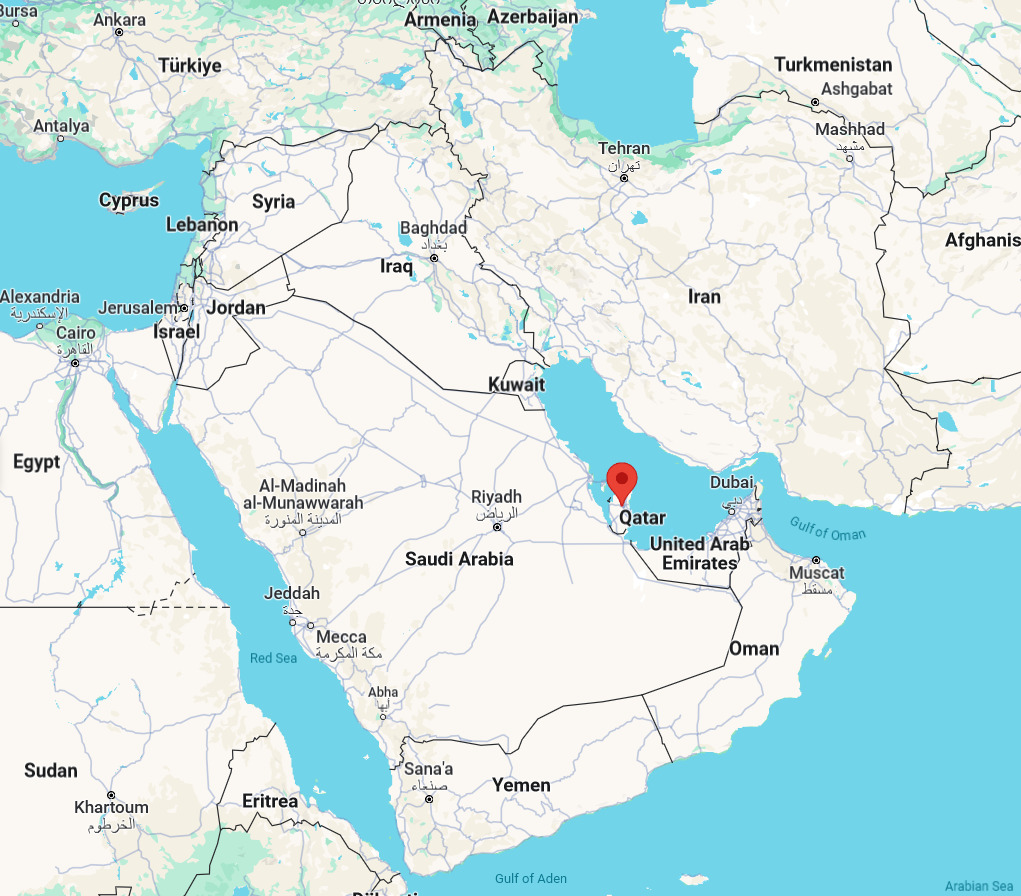What is Al Jazeera?
is al jazeera pro usa


Discovered Al Jazeera. Recently on the news due to 2011 Egyptian revolution.
Al Jazeera is an international news network headquartered in Doha, Qatar. Initially launched as an Arabic news and current affairs satellite TV channel with the same name, Al Jazeera has since expanded into a network with several outlets, including the Internet and specialty TV channels in multiple languages. Al Jazeera is accessible in several world regions and is owned by Qatar Media Corporation.
The original Al Jazeera channel's willingness to broadcast dissenting views, for example on call-in shows, created controversies in the Arab states of the Persian Gulf. The station gained worldwide attention following the September 11, 2001 attacks, when it was the only channel to cover the war in Afghanistan live from its office there.
[2011-02-25 from Wikipedia]
Where is Qatar?
Qatar is a tiny country in the Persian Gulf. (below Iran and Iraq, to the right of Saudi Arabia, above United Arab Emirates.) Qatar is rich in oil and gas, with the third largest gas reserves. It is the wealthiest country in the world, by GDP. Each household in Qatar, makes about twice more than USA.


Al Jazeera is Freedom of the Press?
Looks like it's freedom of the press of the Mid East. Quote:
Al Jazeera's availability (via satellite) throughout the Middle East changed the television landscape of the region. Prior to the arrival of Al Jazeera, many Middle Eastern citizens were unable to watch TV channels other than state-controlled national TV stations. Al Jazeera introduced a level of freedom of speech on TV that was previously unheard of in many of these countries. Al Jazeera presented controversial views regarding the governments of many Persian Gulf states, including Saudi Arabia, Kuwait, Bahrain and Qatar; it also presented controversial views about Syria's relationship with Lebanon, and the Egyptian judiciary. Critics accused Al Jazeera of sensationalism in order to increase its audience share. Al Jazeera's broadcasts have sometimes resulted in drastic action: for example, when, on 27 January 1999, critics of the Algerian government appeared on the channel's live program El-Itidjah el-Mouakass (“The Opposite Direction”), the Algerian government cut the electricity supply to large parts of the capital Algiers (and allegedly also to large parts of the country), to prevent the program from being seen. At that time, Al Jazeera was not yet generally known in the Western world, but where it was known, opinion was often favourable and Al Jazeera claimed to be the only politically independent television station in the Middle East. However, it was not until late 2001 that Al Jazeera achieved worldwide recognition, when it broadcast video statements by al-Qaeda leaders.
[2011-02-25 from Wikipedia]
Attacks on and censorship of Al Jazeera
now, the juicy part.
On November 13, 2001, during the US invasion of Afghanistan, a U.S. missile strike destroyed Al Jazeera's office in Kabul. There were no casualties.
According to Glenn Greenwald, Al Jazeera is “constantly demonized in the American media.” In the run-up to the 2003 invasion of Iraq, the U.S. Pentagon hired the Rendon Group to target and possibly punish Al Jazeera reporters who did not stay on message. When Al Jazeera went on to do reporting featuring very graphic footage from inside Iraq, US officials decried Al Jazeera as anti-American and as inciting violence because it reported on controversial events.
Examples of censorship in the U.S. came shortly after the start of the invasion. On Monday, 24 March 2003, two Al Jazeera reporters covering the New York Stock Exchange (NYSE) had their credentials revoked. The New York Stock Exchange banned Al Jazeera (as well as several other news organizations whose identities were not revealed) from its trading floor indefinitely. NYSE spokesman Ray Pellechia claimed “security reasons” and that the exchange had decided to give access only to networks that focus “on responsible business coverage”. He denied the revocation has anything to do with the network's Iraq war coverage. However, Robert Zito, the exchange's executive vice president for communications, indicated that Al Jazeera's graphic footage broadcast on Sunday, 22 March 2003, led him to oust Al Jazeera. The move was quickly mirrored by Nasdaq stock market officials. The ban was rescinded a few months later.
In addition, Akamai Technologies, a U.S. company whose founder was killed in 9/11, canceled a contract to provide web services for Al-Jazeera's English language website.
[2011-02-25 from Wikipedia]
Death of Tareq Ayyoub
On 8 April 2003, Al Jazeera's office in Baghdad was hit by a U.S. missile, killing reporter Tareq Ayyoub and wounding another. Al Jazeera reports that it had mailed coordinates for their office to the U.S. State Department six weeks earlier and that these should have clearly identified their location. Dima Tareq Tahboub, the widow of Tareq Ayyoub, continues as of 2003[update] to denounce her husband's death and has among other things written for The Guardian and participated in a documentary broadcast on Al Jazeera English.
On 30 January 2005, the New York Times reported that the Qatari government, under pressure from the Bush administration, was speeding up plans to sell the station. However, as of 2011, the station/network has not been sold and it is unclear whether there are still any plans to do so.
[2011-02-25 from Wikipedia]
Al Jazeera bombing memo
On 22 November 2005, the UK tabloid The Daily Mirror published a story claiming that it had obtained a leaked memo from 10 Downing Street saying that former U.S. President George W. Bush had considered bombing Al Jazeera's Doha headquarters in April 2004, when U.S. Marines were conducting a contentious assault on Fallujah.
In light of this allegation, Al Jazeera has questioned whether it has been targeted deliberately in the past — Al Jazeera's Kabul office was bombed in 2001 and another missile hit its office in Baghdad during the invasion of Iraq, killing correspondent Tareq Ayyoub. Both of these attacks occurred subsequent to Al Jazeera's alleged disclosure of the locations of their offices to the United States.
[2011-02-25 from Wikipedia]
US Propaganda
USA, countered with “Al Hurra”.
Alhurra is a United States-based satellite TV channel, sponsored by the U.S. government. It began broadcasting on February 14, 2004 in 22 countries across the Middle East. U.S. Government sources generally refer to the channel as Al-Hurra. Like all forms of U.S. public diplomacy, the station is forbidden from broadcasting within the U.S. itself under the 1948 Smith-Mundt Act concerning the broadcast of propaganda.
[2011-02-25 from Wikipedia]